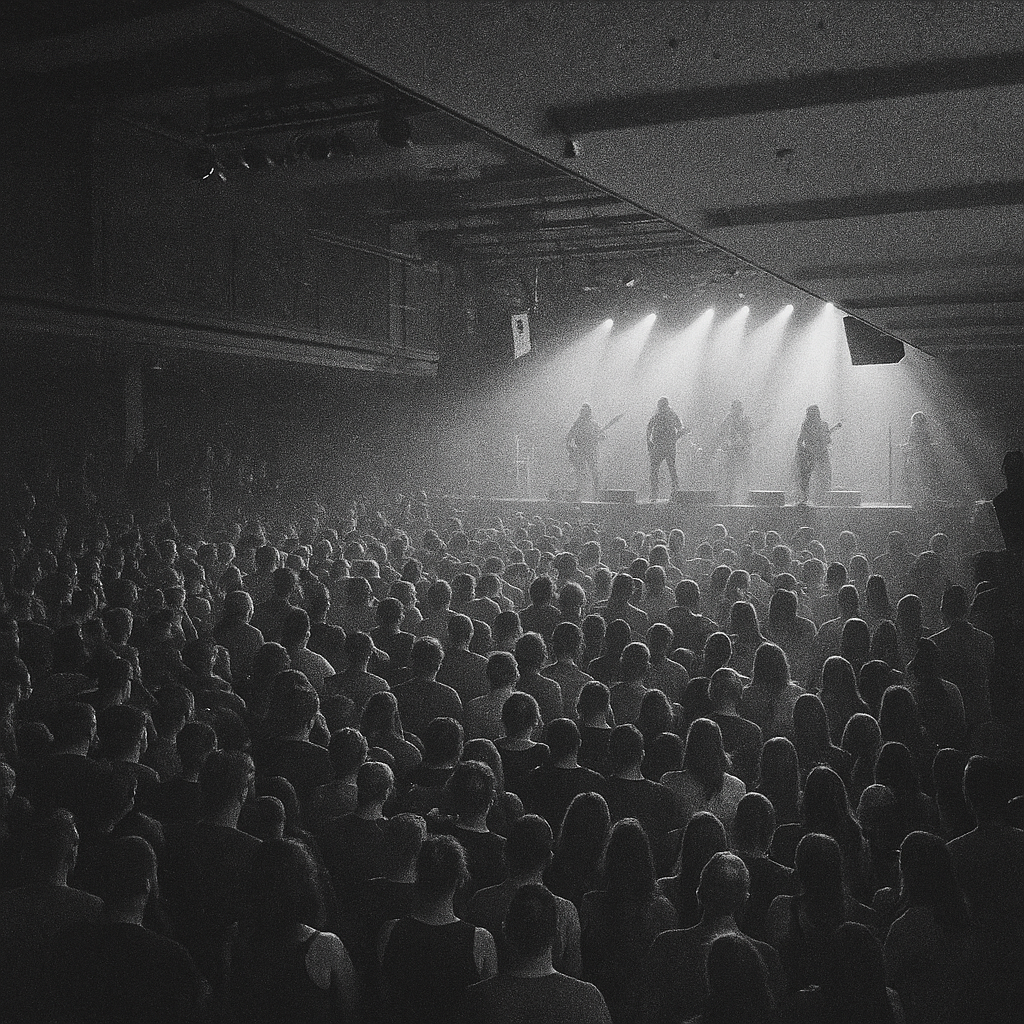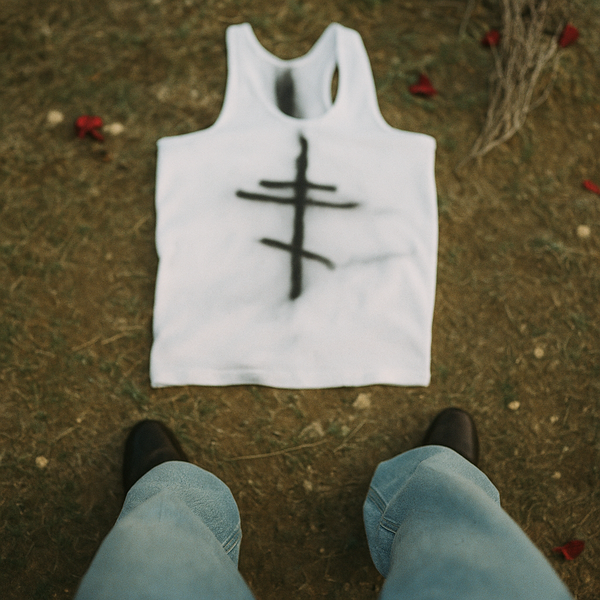Lars Ulrich and the Unyielding Connection of Metallica's Music

Lars Ulrich is talking to a bunch of kids who weren't even born when St. Anger dropped, and this isn't some meet-and-greet bullshit where rock stars sign autographs and pretend to care about your demo tape. This is Ulrich—the same guy who took on Napster when everyone else was too scared to pick a side—dropping truth bombs about what it really takes to make it in music.
"You've gotta put the time in," he tells them, and you can practically hear the eye-rolls from the cynics in the back. But here's the thing: when a guy who's been doing this for four decades, who's weathered every storm from tape trading to TikTok, tells you to ignore the algorithms and trust your gut, maybe you should shut up and listen.
At recent festival appearances, Ulrich has been focusing on connecting with young musicians about the only thing that matters: making music that means something. Not to Spotify's recommendation engine, not to some A&R suit in Los Angeles, but to you. The person holding the guitar.
The Gospel According to Lars
The advice he's giving these kids isn't revolutionary. Invoking the 10,000-hours rule while emphasizing being honest about your motives, whether you're chasing passion, fame, or wealth—but coming from Ulrich, it carries weight. This is someone who's seen bands rise and fall, who's watched the industry eat itself and shit out algorithms, who's somehow managed to keep Metallica relevant when most of their peers are playing county fairs and casino lounges.
What strikes you about Ulrich at these events isn't his fame or his fortune—it's his genuine belief that music still matters. In an age where everyone's trying to go viral with 15-second clips, he's telling kids to focus on writing songs that will outlast the platform they're posted on. It's almost quaint, like watching someone teach calligraphy in the age of autocorrect. But maybe that's exactly what we need.
When Metallica started, there was no blueprint for what they were doing. No YouTube tutorials on how to play faster, no Reddit threads about the best amp settings for that Bay Area sound. They just plugged in and played like their lives depended on it.
When Metal Saves Lives
There's this documentary making the rounds—Metallica Saved My Life—and before you write it off as hyperbolic fan worship, consider this: how many bands have soundtracked both your best and worst moments? How many artists have you turned to when the walls were closing in and you needed someone to scream for you because you couldn't scream anymore?
The film doesn't just parade superfans in front of cameras to gush about their favorite guitar solos. It digs into something deeper—the way certain music becomes a lifeline when you're drowning. These aren't just stories about people who love Metallica; they're stories about people who might not be here without them.
The documentary captures what the streaming services can't quantify: the moment when a song stops being entertainment and becomes survival. When James Hetfield growls about inner demons, he's not performing; he's exorcising. And for millions of fans, that exorcism is communal. It's therapy at 120 decibels.
The Algorithm Can't Kill What's Real
Here's what the tech bros don't understand about Metallica's endurance: you can't engineer authenticity. You can't A/B test your way to writing "One." No amount of data analytics could have predicted that a bunch guys from California and Denmark would create music that would still pack stadiums forty years later.
In the documentary, fans talk about discovering Metallica in basements and parking lots, through dubbed cassettes and borrowed CDs. Now their kids are finding them through TikTok and Stranger Things. The delivery method changed, but the impact didn't. Because when Hetfield sings about alienation, addiction, and anger, he's not trend-chasing—he's bleeding.
The band continues to play like they're trying to level the venue. They've adapted to the times without sacrificing what made them matter in the first place. Their music streams millions of times not because some playlist curator decided they should, but because new generations keep discovering that sometimes you need music that matches the chaos in your head.
Why It Still Matters
There's something almost defiant about Metallica's continued relevance. In an industry that treats artists like content creators and songs like data points, they remain stubbornly human. Their music doesn't fit neatly into mood playlists or workout mixes. It demands attention, refuses to be background noise.
When Ulrich talks to those young musicians, he's not just giving career advice—he's passing on a philosophy. "It's great for us to turn the spotlight away from us and on to the fans," he says. "This is a celebration of the diversity of our fans." Make music that matters to you first. Play it live until your fingers bleed. Build a community, not a following. These aren't tips for going viral; they're instructions for survival in an industry that wants to reduce everything to metrics.
The Metallica Saved My Life documentary and Ulrich's mentorship at festivals reveal the same truth: the best music isn't just heard, it's felt. It's not content to be consumed and forgotten. It burrows into your bones and becomes part of your story.
Look, rock might not dominate the charts anymore. Guitar music might be considered a niche market by the streaming overlords. But as long as there are kids who need something louder than their problems, as long as there are people who find salvation in power chords and double bass drums, bands like Metallica will matter.
The algorithms can try to predict what we want to hear, but they'll never understand what we need to hear. They can't calculate the moment when the right song saves someone's life. They can't quantify the connection between artist and audience that happens in a sweaty club or a rain-soaked festival field.
Metallica endures because they never forgot that music isn't just product—it's purpose. And as long as there are musicians like those kids at festivals, willing to ignore the metrics and follow their gut, rock and roll will keep crawling out of whatever grave the industry tries to bury it in.
That's the real lesson from Lars Ulrich and the unyielding connection of Metallica's music: authenticity isn't a marketing strategy. It's the only strategy that matters.
References
- https://blabbermouth.net/news/lars-ulrich-on-metallica-saved-my-life-film-its-great-for-us-to-turn-the-spotlight-away-from-us-and-on-to-the-fans
- https://blabbermouth.net/news/metallicas-lars-ulrich-offers-advice-to-young-musicians-youve-gotta-put-the-time-in
- https://en.wikipedia.org/wiki/Metallica_Saved_My_Life
- https://tribecafilm.com/films/metallica-saved-my-life-2025
- https://www.metallica.com/news/in-the-press/2025-06-12-in-the-press-01.html
- https://www.rottentomatoes.com/m/metallica_saved_my_life_2025
- https://wmmr.com/2025/06/13/metallica-documentary-reveals-global-fan-impact-across-23-countries
- https://www.nme.com/news/film/metallica-release-first-trailer-for-new-fan-documentary-metallica-saved-my-life-3853235
- https://metal-stop.com/metallica-turns-spotlight-on-fans-with-new-documentary-metallica-saved-my-life-james-hetfield-explains-how-movie-came-about
- https://consequence.net/video/metallica-documentary-red-carpet-interview
- https://time.news/metallica-saved-my-life-review-two-powerful-achievements
- https://www.moviefeast.info/metallica-saved-my-life-review
- https://blabbermouth.net/news/lars-ulrich-the-fact-that-metallicas-music-is-still-connecting-with-so-many-people-is-just-insane
Models used: gpt-4.1, claude-opus-4-1-20250805, claude-sonnet-4-20250514, gpt-image-1




